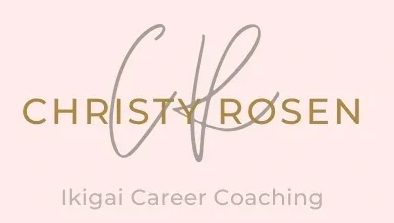Why in the world is writing a brand statement so hard for people?! Let’s unpack this!
What is the PURPOSE?
A brand statement has several purposes, but the main reason is to communicate why you are the best candidate for a potential employer. It is best to keep your statement to around 75 to 150 words and I always encourage people not to be shy with the word count. Use it.
You can also adapt your brand statement into several professional components such as LinkedIn Summary, Career Statement on your Resume, Cover Letter, Elevator Pitch, and the interview question “Tell me about yourself.”
But before writing your “Brand Statement” you need to know who the heck you are and what you want out of your career. Having self-awareness goes a long way in the development process.
What is a BRAND?
How do companies brand themselves? When you think of Coke what do you think about? Tons of happy, smiling people running in a field of flowers with Coke bottles in their hands singing “I’d like to buy the world a Coke”? (I just dated myself – I think that campaign is from the ’70s or ’80s.) But you get my drift.
The takeaway is what lasting impression will you leave with potential employers with your brand statement? Can you fill a need and add value to their organization/team?
Your brand statement is designed to communicate your professional self in the best possible light so that people understand where you have been, where you are now, and where you plan to go focusing on your strengths, skills, and key accomplishments.
Step-by-Step Brand Statement Development
First, we are going to ask ourselves some questions. This is where a little self-reflection goes a long way.
- What are your TALENTS? This is your natural ability to excel at something you were born with vs a learned skill. This will be the basis for your brand. Talents include public speaking, writing, self-management, networking, critical thinking, decision-making, math, and negotiating.
- What are your VALUES? Here you want to think about things that are important to you such as work ethic, optimism, adaptability, flexibility, dependability, honesty, motivation, creativity, leadership, and authenticity.
- What are your Soft and Hard SKILLS? Soft skills are traits that make you a good employee, and hard skills are technical and/or learned. Examples for both include (hard) web development, analytics, Lean Six Sigma, Microsoft Suite, curriculum design, training, cyber security, UX/UI, and financial modeling; (soft) problem-solving, collaboration, communication, interpersonal skills, and leadership.
It might also be helpful to ask friends, colleagues, and clients how they would describe you.
Now it is time to put pen to paper. Include your skills, values, and talents along with accomplishments that align with the career you are pursuing. Try not to overthink it.
Examples
As a catalyst for positive change, I have a history of engaging board and staff members to generate new ideas and increase overall performance. I am adept at establishing policies, procedures, and technologies to enhance efficiency, financial health, and service to organize constituents. I enjoy building and strengthening strategic alliances. My passion is to guide nonprofits, specifically, those focused on youth empowerment, to achieve new heights.
Tamara Dowling, CPRW, MCRS — Valencia, Calif. (www.dummies.com)
Recognized for 20+ years of success in linking science-based achievements with decisive market leadership to build high-performance organizations with significant financial rewards. Led strategic and operational breakthroughs in proactive health informatics and communications technologies, evidence-based prevention and care management products, and cost-effective healthcare delivery systems. Looking to pioneer in wellness and prevention programs, disease management, and population health.
Wendy Enelow, CCM, MRW, JCTC, CPRW — Coleman Falls, Va. (www.dummies.com)
I am a passionate facilitator and professional career coach certified in resume writing and interviewing helping people find their place in the workforce by honing job search strategies, networking ability, LinkedIn, branding, resume development, salary negotiations, and interviewing skills.
